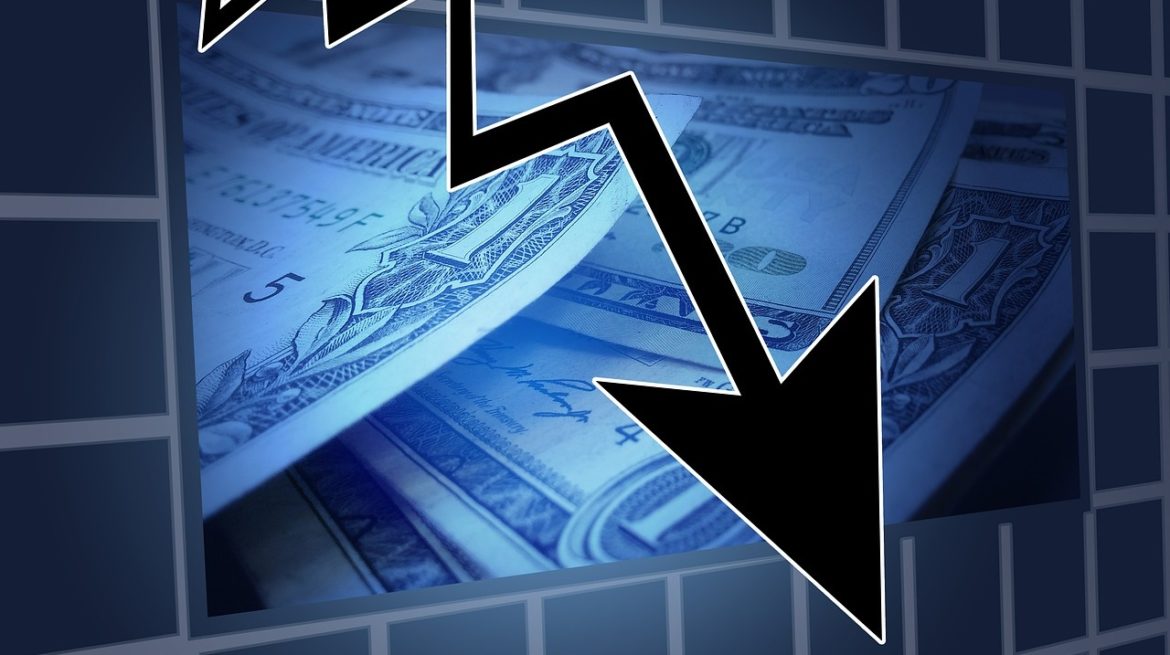Gold has all the potential to go unprecedentedly high. But silver will be gold on
Site:
Precious metals news
 FIRST MAJESTIC SILVER COST NOW HIGHER THAN MARKET PRICE: Must See For All SRSrocco Report Subscribers
FIRST MAJESTIC SILVER COST NOW HIGHER THAN MARKET PRICE: Must See For All SRSrocco Report SubscribersAugust 3, 2023
If we look at the "Realistic Total Costs" to produce silver, First Majestic needs more than the market price to break even. Again, this is my analysis which is much different from the industry's AISC - All In Sustaining Cost, which I discuss in my newest Video Update...
Despite a brief dip in response to a strengthening dollar and rising bond yields, the long-term outlook for gold remains positive. Over the past two decades, gold has consistently shown its value as a safe-haven asset during periods of economic uncertainty. While fluctuations are natural in any market, gold's steadfast rise underscores its enduring appeal to investors. Today's dip should be viewed in the broader context of gold's upward trend, rather than an indication of future performance.
The "soft landing" narrative has historically been a comforting yet risky belief that the economy can gradually slow down without entering a recession. This narrative has been disproven during major economic downturns, notably in 1989, 2000, and 2007. In each case, signs of economic instability were overlooked, and a hard economic downturn followed. Over-reliance on the "soft landing" belief in today's economic climate, despite clear red flags, may risk repeating these past mistakes and leading to a significant economic fallout.
The U.S. Treasury is increasing its quarterly sales of long-term debt for the first time in over two years due to rising borrowing needs. This has contributed to Fitch Ratings downgrading the U.S. credit rating from AAA to AA+. The debt surge, part of the Biden administration's deficit-focused policy, may lead to the U.S. hitting $1+ trillion in interest payments soon. Analysts predict this could lead to higher yields and potentially require another round of quantitative easing from the Federal Reserve.
Rising global food prices are outpacing overall inflation, with Canada experiencing a 9.1% YoY increase. The US is facing a similar fate, with all food prices expected to increase 6%, within a prediction interval of 5% to 7.1%, according to the US Department of Agriculture. These prices, amplified by factors like labor shortages and pandemic disruptions, are expected to remain higher than pre-pandemic levels. Concerns of "greedflation," where grocers use inflation to increase profits, have also been raised. Oxford Economics sees global food prices remaining 25% higher than during the pre-pandemic decade.
 Congress Continues to Sidestep Social Security's Impending Insolvency Crisis
Congress Continues to Sidestep Social Security's Impending Insolvency CrisisAug 2, 2023 - 08:19:53 PDT
Efforts to prevent Social Security insolvency have stalled, likely to resume post-2024 elections, according to Sen. Bill Cassidy. Bipartisan talks led by Cassidy and Sen. Angus King, exploring solutions like adjusting retirement age, failed to produce a plan. Without action, Social Security will only be able to pay out 100% of benefits until 2034, after which there may be a 23% cut in benefits.
 Tesla Roadster: $1 Million Target For 'Car That Killed the Internal Combustion Engine'
Tesla Roadster: $1 Million Target For 'Car That Killed the Internal Combustion Engine'Aug 2, 2023 - 08:01:38 PDT
In his latest video, Mike explores the untapped investment potential of the groundbreaking Tesla Roadster.
Over 1,000 bank accounts are being closed daily, up from 45,000 closures in 2016-17 to over 343,000 in 2021-22, prompting controversy over "debanking." Banks often cite financial crime concerns with little explanation. The situation has sparked calls for investigation, led by figures like Nigel Farage whose account was closed recently. The closures affect not only politically exposed individuals, but also ordinary citizens and small businesses. Current policy allows banks to provide little to no explanation for these actions.
Global debt is alarmingly high at nearly $305 trillion as of Q1 2023, and expected to grow, causing concern for government leverage amidst rising interest rates and slowing growth. Projections suggest U.S. public debt-to-GDP will reach a record 134% by 2027, raising net debt servicing costs, with the next decade's interest costs on U.S. debt projected at $10.6 trillion. Similarly, China's debt is surging rapidly, predicted to exceed 100% by 2026, with new government debt issuance reaching record levels this year, largely from infrastructure bonds.
 BOJ Far From Exiting One of World's Longest-Running Negative Rate Regimes
BOJ Far From Exiting One of World's Longest-Running Negative Rate RegimesAug 2, 2023 - 06:54:32 PDT
Following the Bank of Japan's (BOJ) recent adjustment to its yield curve control program that rattled global markets, Deputy Governor Shinichi Uchida stated that the BOJ is far from exiting its current policy or raising its negative interest rate. He warned that despite market upheaval, the end of the BOJ's negative rate policy is not near, suggesting a challenging economic landscape ahead.
Aug 2, 2023 - 06:37:26 PDT
Under Biden's administration, inflation has significantly impacted the middle and low-wage classes, with surges in mortgage rates being a key concern. Mortgage rates have risen by 134%, leading to a 45% decrease in mortgage purchase demand and a 90% decline in refinancing demand. Weekly data from the Mortgage Bankers Association reveals a 3% decrease in mortgage applications, contributing to an annualized increase in US interest expenses of about 50%, approaching $1 trillion.
 ADP Report Shows Wage-Growth Slowing, Manufacturing Sector Loses Jobs For 5th Straight Month
ADP Report Shows Wage-Growth Slowing, Manufacturing Sector Loses Jobs For 5th Straight MonthAug 2, 2023 - 06:19:55 PDT
Despite an overall job addition of 324k in July, the employment report by ADP paints a gloomier picture for some sectors. Manufacturing has been shedding jobs for five consecutive months. Worryingly, wage growth is on a slowdown, rising just 6.2% for those retaining jobs and 10.2% for job changers. This sluggish wage growth could signal troubled waters for the economy.
Despite significant selling by Turkey that slowed net central bank gold buying in the second quarter, central banks added a record amount of gold to their reserves through the first half of 2023.
Is price inflation really heading back toward the Federal Reserve's 2% target?Most people in the mainstream seem to think so, and the recent drop in the consumer price index (CPI) appears to support this belief. Price inflation has trended downward over the last several months, with the annual CPI falling from a high of 9% last year to just 3% in July. But I don't think the Fed has won the inflation fight and I don't believe the central bank's sanguine inflation outlook is correct.I think easing price inflation is transitory.
Aug 2, 2023 - 05:59:51 PDT
President Biden's 10th-quarter approval rating is the second lowest among post-WWII U.S. presidents, with only Jimmy Carter's being lower. Biden, along with Vice President Harris, remains underwater in personal favorability ratings, with 57% of Americans viewing Biden unfavorably. His current approval rating is substantially lower than the majority-level favorability he garnered at the start of his presidency.
 Fitch Downgraded Its US Credit Rating Over Fiscal Deterioration & Government’s Growing Debt Burden
Fitch Downgraded Its US Credit Rating Over Fiscal Deterioration & Government’s Growing Debt BurdenAug 2, 2023 - 05:39:08 PDT
Fitch has downgraded the US credit rating from AAA to AA+, citing deteriorating governance standards and rising debt, which sent global stock markets tumbling. This follows precarious US debt ceiling negotiations risking the nation’s first default. Fitch predicts a significant rise in the US deficit by 2023. Despite this, Goldman Sachs analysts argue that no significant forced selling of Treasury securities is expected, mirroring events after the 2011 S&P downgrade. However, the impact on market sentiment is notably negative.
On August 1, a law making gold and silver legal tender in Arkansas went into effect. The new law also effectively repeals the state capital gains tax on gold and silver.Enactment of this legislation will relieve some of the tax burden on investors, and take a step toward treating precious metal bullion as money instead of a commodity.
The debt ceiling deal was supposed to stabilize things for the US government. By suspending the debt limit for two years, Congress mitigated the fear of a US default, but the deal apparently wasn't enough to paper over the dysfunction in Washington DC.On Tuesday, Fitch Ratings downgraded the US's long-term credit rating from AAA to AA+.
According to the Alberta Energy Regulator, mined oil sands production plummeted 48% in June. Is this true? Well, there seem to be some questions behind the data, but I will explain more of what is going on in the Alberta Oil Sands and why I believe it won't be sustainable for many years...
The G7's aim to reach net-zero emissions by 2050 will boost demand for silver, used in green energy, electronics, and defense. Yet, supply is under strain due to rising mining costs, environmental regulations, and mining bans in major producers like Mexico. Meanwhile, silver is gaining popularity as a hedge against systemic risk, inflation, and de-dollarization, as nations push back against U.S. dollar hegemony. These factors, combined with silver's role in emergent technologies like solid-state batteries, signal a bright future for silver despite challenges faced by miners, thereby driving up silver prices. The ambitious “net zero” agenda means that strategic metals are the new oil.







